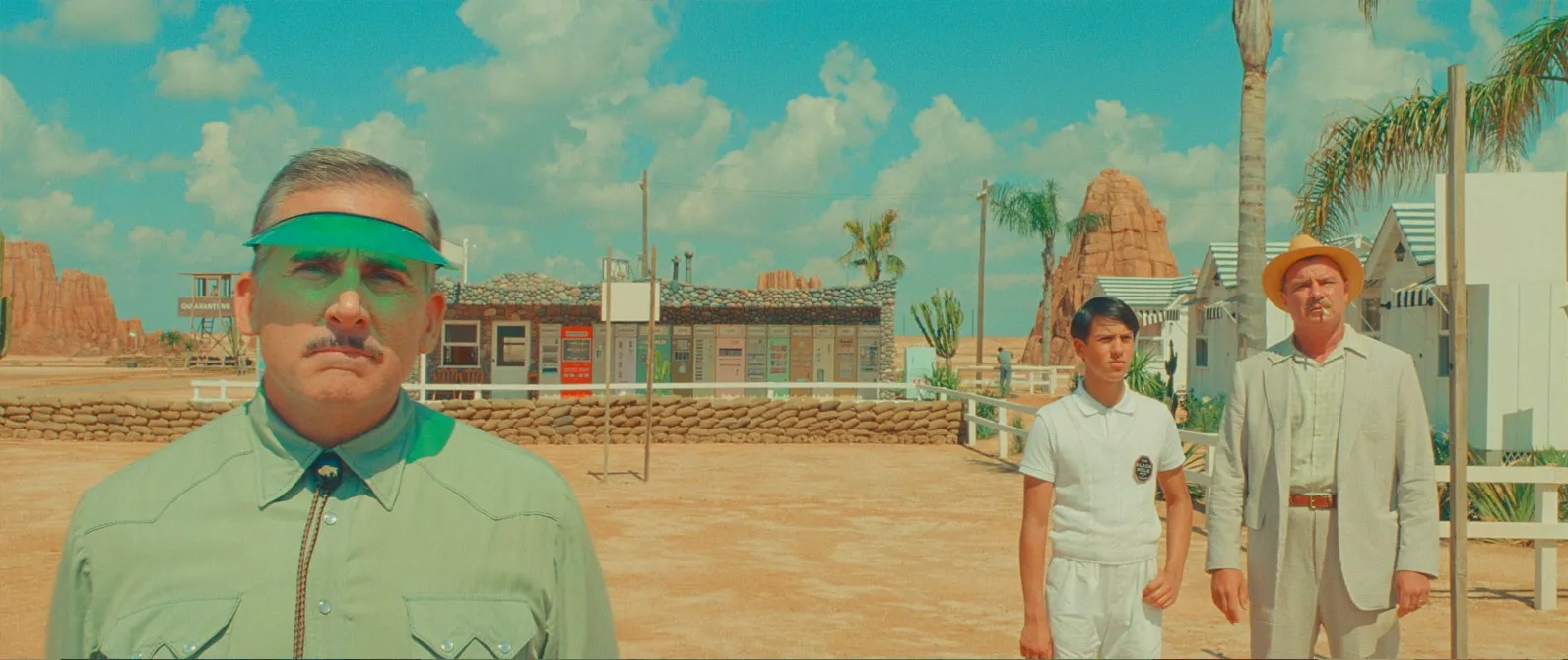
Film Review: Asteroid City
Film Reviews
Asteroid City
Director: Wes Anderson
Focus Features
In Theaters: 06.23
Wes Anderson’s films have always exhibited a sense of wonder, usually at the humor and weirdness of mundane things. Occasionally he directs that wonder outward, toward the enigmatic and indifferent beauty of the natural world (The Life Aquatic’s jaguar shark or the wolf who returns a salute to Mr. Fox in Fantastic Mr. Fox). In Asteroid City, Anderson sets his scope upward upon matters cosmic, extraterrestrial and theological. The film is expectedly hilarious and visually inventive, but it’s also a deceptively rich and thoughtful work from America’s foremost cinematic stylist.
In Asteroid City’s titular, barely populated desert outpost, a group of bright kids with socially alienating interests gather to show off their award-winning science experiments. They’re chaperoned by the types of adults they’ll probably grow up to be: people smart enough to diagnose their own failings but lacking the emotional means to do very much about them. Anderson wisely gives his characters and setting a lot of room to breathe. Alexandre Desplat’s musical score is wonderful but noticeably sparse, and Robert Yeoman’s framing is overall less densely packed than in Anderson’s recent films. It feels like a turning point, a change of pace from the rhythmically propulsive films Anderson has put together over the last decade and a half.
Anderson’s script here also plays with symbolism and metaphor in ways that feel new for him, and he invites us to think of the story in those terms. The main events are presented as a play written by a fictional, Tennessee Williams–type playwright, and so the question of the film’s emotional premise deepens past, “What do these events mean for these characters?” to also ask, “What does it mean that these characters were written this way by another character?” It feels literary and deliberate, drawing the focus of Anderson’s influences away from the French New Wave panache of The French Dispatch and into the domain of the mid-century American theater.
The film was ostensibly shot on location in the Spanish desert, though for most of the film it’s hard to discern where the location ends and Anderson’s painterly, postcard-ish backdrops begin. It’s his most successful and extensive synthesis of nature and artifice, dreamily evoking the beautiful, orange-sherbet landscapes of the American Southwest.
And still, for all of Asteroid City’s careful layers of contrivance, it shows a collage of delicately emotional characters, of creative people struggling to express themselves in terms other than their craft. They’re trying; they desperately want to hold onto the people around them. They’re looking upward for the answers, and they can’t quite see, like we can, that the answers are probably down here instead. –Daniel Kirkham
Read more Wes Anderson–related coverage:
Film Review: The French Dispatch of the Liberty, Kansas Evening Sun
Localized: The Zissous